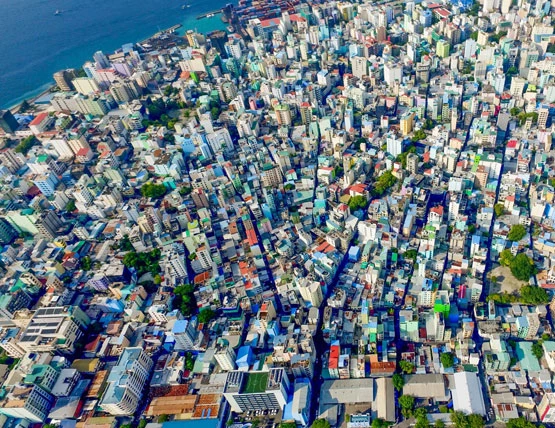Project overview
The Republic of Maldives is an archipelago of around 1200 coral islands stretching 500 miles across the Indian Ocean. Of these, around 200 islands are inhabited and a further 80 have been developed as tourist resorts. In complete contrast to the rest f the country, the capital island, Male’ is 2 square kilometres in area and home to one third of the country’s population of around 270,000 along with a further 40,000 immigrant workers, making it one of the most densely populated places on the planet. Half of the population are under 18 years of age.
Maldives is experiencing rapid change and development. The traditional culture of Maldivian life is being influenced by many factors that are competing to reshape and influence the future of the people. Child Abuse is a national issue that has been identified as needing attention and solutions. The United Nations Convention on the Rights of the Child (CRC) was signed by the Maldivian government in August 1990. Since that time much effort has been put into improving the lives of children and young people in Maldives
A situation analysis that took place between 2000 and 2005, focussing on 10 of the 20 administrative Atolls and highlighted a number of problems relating to Child Protection. There is no co-ordinated method of collecting national or regional data regarding Child Abuse, Juvenile Delinquency or Domestic Violence. The Agencies involved have developed their own classification and codes that make any analysis difficult to extrapolate and this is hampering the development of strategic plans to combat the problems facing the country.
